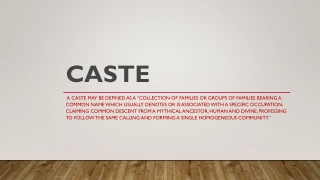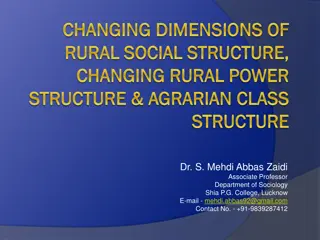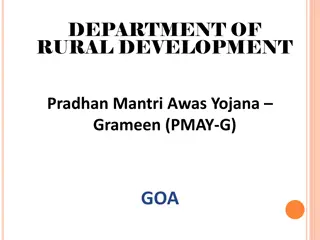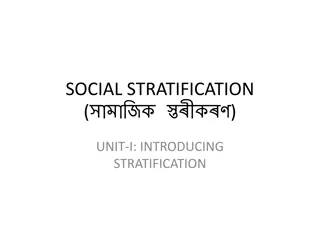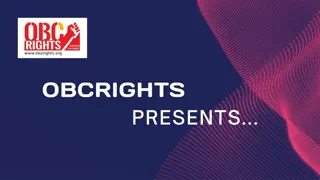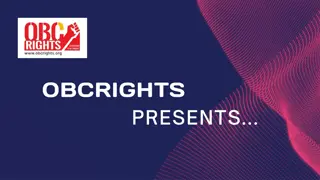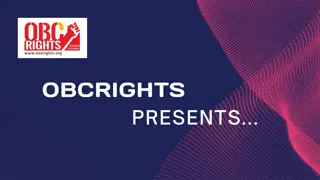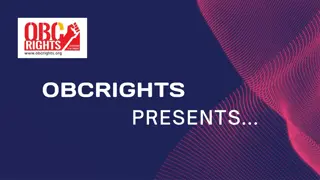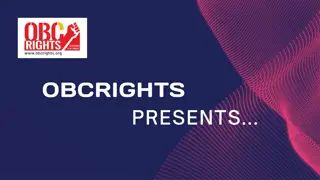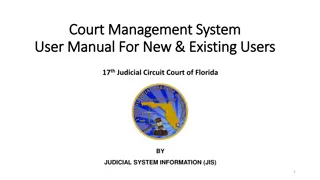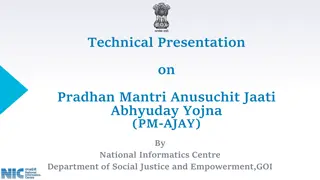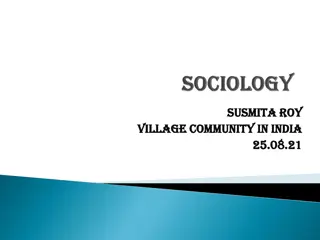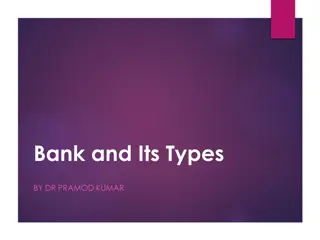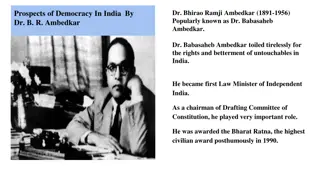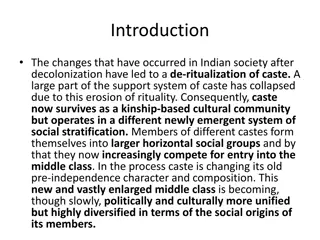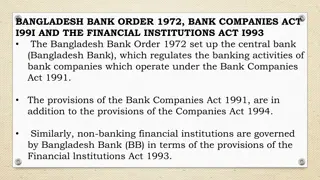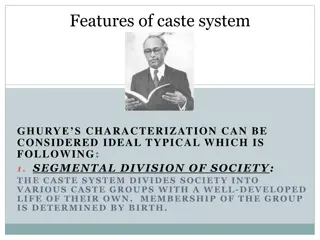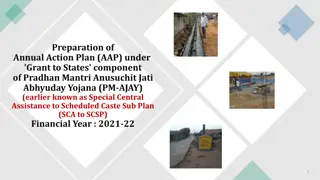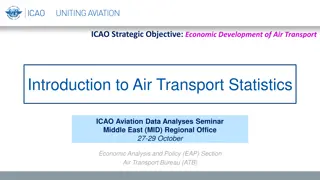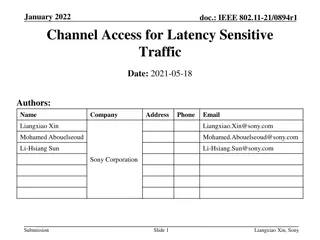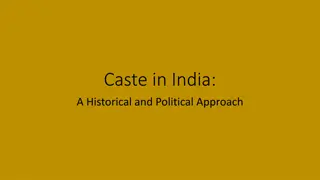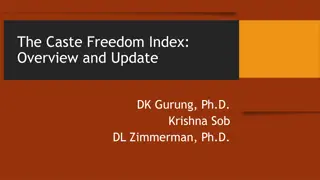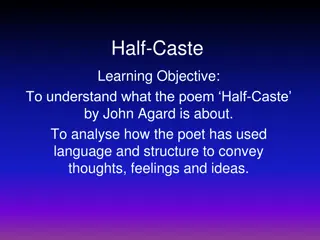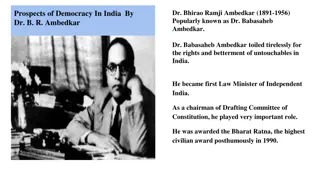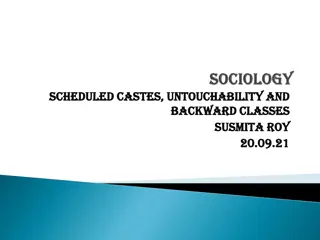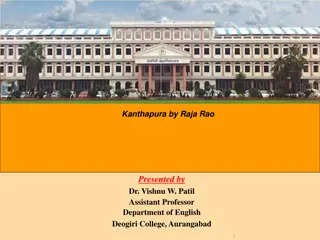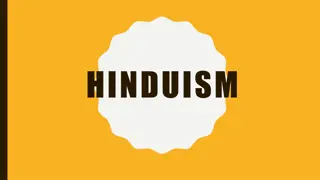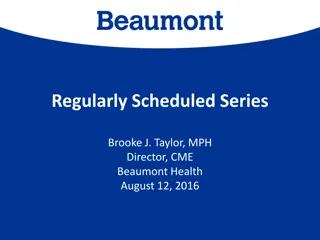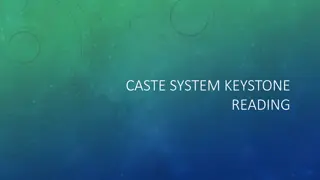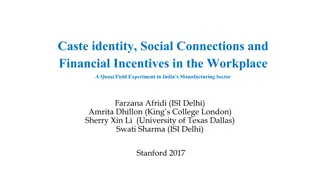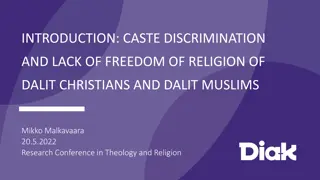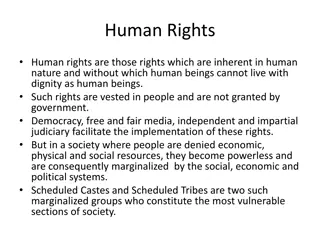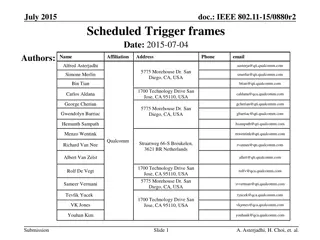Overview of Caste System in India
The caste system in India is a social structure defined by hereditary groups, each with specific occupations, rules, and traditions. Membership is based on birth, leading to a rigid hierarchy and limited mobility between castes. Endogamy, occupation, commensality, and purity are key features that sh
0 views • 17 slides
Understanding Gender Roles in Society
Gender roles in society are socially constructed, with distinctions between gender and sex. Gender influences behavior, responsibilities, and societal expectations. Factors like family, caste, class, religion, culture, media, and laws play a significant role in shaping these roles. It's crucial to c
2 views • 34 slides
Status of Family Laws in India: Hindu vs. Religious Minorities
The family and personal status laws in India vary between Hindu law and those pertaining to religious minorities. While Hindu law has seen extensive reforms, discriminatory provisions still exist. In contrast, laws governing religious minorities have undergone fewer reforms, leading to greater inequ
2 views • 4 slides
Changing Dimensions of Rural Social Structure in India
Rural social institutions in India have deep historical roots, encompassing family, kinship, caste, class, and village structures. This complexity reflects a wide range of social norms, values, roles, and obligations. Changes in the caste system and the practice of jajmani are also highlighted, show
2 views • 21 slides
Pradhan Mantri Awas Yojana Grameen (PMAY-G) in Goa
Pradhan Mantri Awas Yojana Grameen (PMAY-G) is a housing scheme launched in Goa aiming to provide assistance to rural families for constructing houses. Beneficiaries are selected based on the Socio Economic Caste Census 2011. The scheme offers financial aid of Rs. 1,20,000 per house. Challenges face
0 views • 8 slides
Iravati Karve - Renowned Anthropologist and Sociologist
Iravati Karve (1905-1970) was a distinguished anthropologist, sociologist, educationist, and writer known for her work on kinship, Indian culture, and the Mahabharata. Through her major works and analysis of kinship organization in India, Karve made significant contributions to understanding regiona
2 views • 14 slides
SOCIAL STRATIFICATION
Social stratification categorizes individuals based on factors like wealth, education, and power. Caste systems, as seen in India, are closed and ascribed by birth, while class systems are open and based on achievement. This comparison highlights the differences between the two systems and their imp
4 views • 5 slides
How to apply for a Community Certificate in Tamil Nadu
A community certificate is a document serving as proof that an individual belongs to a specific category or caste. The main reserved categories in the country are Scheduled Caste (SC), Scheduled Tribes (ST), and Other Backward Classes (OBC). This certificate can be applied in the E-Sevai portal.\nTo
3 views • 5 slides
DNC cast list popuplation in as per Ambasankar Commission .
Denotified Communities (DNC) refer to social and educationally Backward groups officially recognized and labelled as such by the Government under the Tamilnadu Backward community.DNC population Count as per the Ambasankar Commission report:Note: The Following are the Communities that are in the Cent
4 views • 5 slides
BC Caste population as per Ambasankar Commission in India
In India, the term \u201cBackward Classes\u201c(BC) refers to socially and educationally Backward groups. In India, they come to OBC at the National level.\nBC population Count as per Ambasankar Commission:\nNote: The Following are the Communities that are in the Central Government list of \u201cOBC
6 views • 5 slides
MBC Caste population as per Ambasankar Commission in India.
MBC in the Indian context typically refers to \u201cMost Backward Classes.\u201d This is a category used in some Indian states to identify communities that are considered socially and educationally Backward.\nMBC population Count as per Ambasankar Commission\nNote: The Following are the Communities
3 views • 5 slides
Guidelines for Upholding Rights of LGBTQ
In light of evolving societal norms and the imperative to safeguard the rights and dignity of LGBTQ individuals and inter-faith\/inter-caste couples, the Supreme Court has given guidelines for the handling of habeas corpus petitions and petitions for police protection.\nBackground:\nRecent instance
9 views • 4 slides
How to apply for a Community Certificate in Tamil Nadu
A community certificate is a document serving as proof that an individual belongs to a specific category or caste. The main reserved categories in the country are Scheduled Caste (SC), Scheduled Tribes (ST), and Other Backward Classes (OBC). This certificate can be applied in the E-Sevai portal.\nDo
6 views • 5 slides
how to get Inter caste Marriage Certificate in Tamil Nadu
other spouse is from a Non-Scheduled Caste. This type of marriage often requires special considerations and documentation due to the different social categories of the spouses.\\nDocuments Needed:-\\nTo request an Inter-caste Marriage Certificate in Tamil Nadu, you must provide the following documen
5 views • 5 slides
Court Management System User Manual: How to Attach Documents to Scheduled Hearings
Learn how to attach supporting documents to already scheduled hearings in the Court Management System. Follow specific steps to add attachments, ensure email registration alignment, and manage uploaded files easily.
0 views • 5 slides
Technical Presentation on PM-AJAY Scheme by NIC, GOI
PM-AJAY is a centrally sponsored scheme with three components aimed at the upliftment of Scheduled Caste communities. The scheme focuses on developing SC dominated villages into model villages, providing grants-in-aid for construction/repair of hostels, and promoting income generation, infrastructur
1 views • 42 slides
Socio-Cultural Features of Village Community in India
The traditional village community in India was historically self-sufficient, with its own production and consumption units. Over time, changes have led to increased interactions among villages, diminishing self-sufficiency. Factors like multi-caste populations, markets, pilgrimages, and pilgrimages
3 views • 18 slides
Maximize Performance with Regular Land Rover Scheduled Maintenance Expert Advice and Insights
Maximize your Land Rover's performance with our expert advice and insights on regular scheduled maintenance. Our specialized service ensures your vehicle runs at peak efficiency, enhancing reliability, safety, and longevity. Trust our knowledgeable t
1 views • 25 slides
Understanding Different Types of Banks in India
Explore the various types of banks in India, including Scheduled Banks, Non-Scheduled Banks, Commercial Banks, and Cooperative Banks. Learn about their classifications, regulations, and primary functions as detailed by experts in the field. Discover the significance of banking operations as governed
0 views • 18 slides
Challenges of Caste System and Democracy in Indian Society
Dr. B.R. Ambedkar discusses the prospects of democracy in India, highlighting the challenges posed by the caste system. He emphasizes the need for true societal unity and cooperation to achieve democracy beyond a mere form of government. The Caste system's deep-rooted inequality and lack of shared e
0 views • 10 slides
Evolution of Caste in Post-Colonial Indian Society
Changes in Indian society post decolonization have led to the de-ritualization of caste, resulting in a shift towards a kinship-based cultural community operating in a new system of social stratification. Secularization of caste has detached it from ritual hierarchy and aligned it with competitive d
5 views • 10 slides
Banking Regulations in Bangladesh: A Comprehensive Overview
The Bangladesh Bank Order of 1972 established the central bank, Bangladesh Bank, which regulates banking activities under the Bank Companies Act of 1991. This legislation, along with the Financial Institutions Act of 1993, sets the framework for overseeing bank companies and non-banking financial in
2 views • 27 slides
Features of Caste System: Ghurye's Characterization
The caste system, as characterized by Ghurye, features segmental division of society determined by birth, hierarchy based on purity, restrictions on feeding and social intercourse, civil and religious privileges/disabilities, lack of occupational choice, and severe restrictions on inter-caste marria
2 views • 6 slides
Preparation of Annual Action Plan under PM-AJAY for Financial Year 2021-22
The preparation of the Annual Action Plan (AAP) under the 'Grant to States' component of Pradhan Mantri Anusuchit Jati Abhyuday Yojana (PM-AJAY) for the financial year 2021-22 involves merging three centrally sponsored schemes to achieve holistic development based on identified needs. The proposed s
0 views • 45 slides
Understanding Air Transport Statistics: Key Concepts and Definitions
Explore the world of air transport statistics with insights into economic development, classification of civil aviation activities, commercial air transport services, and distinctions between scheduled and non-scheduled operations. Learn about essential definitions related to commercial air transpor
0 views • 35 slides
Tips for Editing Scheduled Reports in Procure-to-Pay Projects
Learn how to efficiently edit scheduled reports in your procure-to-pay project to customize report criteria and obtain the necessary results. Follow these step-by-step tips and tricks for seamless report editing.
1 views • 5 slides
Enhancing Channel Access for Latency-Sensitive Traffic in January 2022
In the documentation IEEE 802.11-21/0894r1, the focus is on improving channel access for latency-sensitive traffic through concepts like Restricted TWT (Target Wake Time). The proposal suggests methods to protect TWT Service Periods from non-TWT scheduled STAs, ensuring prioritized transmission of l
0 views • 11 slides
Understanding Caste in India: A Historical and Political Perspective
Caste in India is a complex system deeply intertwined with religion, history, and society. It is a hierarchical structure that dictates social organization, power dynamics, and economic relationships. The system, comprising varna and jatis, perpetuates inequality and marginalization, with long-stand
0 views • 22 slides
Understanding the Caste Freedom Index in Nepal
Delve into the Caste Freedom Index in Nepal, highlighting the current status of Dalits and the need for such an index. Learn about the caste system's power and organization in Nepalese society, and why this index is crucial in combating caste-based discrimination. Explore historical perspectives and
0 views • 20 slides
Understanding John Agard's Poem "Half-Caste
Explore the meaning and themes of John Agard's poem "Half-Caste," analyzing how the poet uses language and structure to convey thoughts and feelings. Delve into the origins of the term "half-caste" and its implications, as well as Agard's unique approach to humor and breaking down racial boundaries
0 views • 13 slides
Challenges of Caste System in Indian Democracy
Dr. B.R. Ambedkar highlighted the challenges of democracy in India, emphasizing the deep-rooted caste system. He explained how the caste system leads to inequality, lack of community purpose, and hinders the ideals of a democratic society. The differences between caste and class systems were also ou
0 views • 10 slides
Understanding Scheduled Castes, Untouchability, and Backward Classes in India
The Scheduled Castes (SCs) and Scheduled Tribes (STs) in India are officially recognized groups, representing about 16.6% and 8.6% of the population respectively. They were historically known as Depressed Classes and have been given reservation status for political representation. The government has
0 views • 20 slides
Raja Rao's Kanthapura: A Tale of Tradition and Transformation
Raja Rao's novel "Kanthapura" narrates the story of a village in South India through the eyes of an old woman, Achakka. The village is divided by caste, with Brahmins holding privilege. The protagonist, Moorthy, embraces Gandhian ideals and challenges the caste system, facing excommunication. The no
0 views • 19 slides
Insights into Hinduism: Traditions, Beliefs, and Society
Hinduism, an ancient religion, developed by the Aryans in India, encompasses a diverse pantheon of gods, beliefs in reincarnation and karma, and a structured caste system. The worship of numerous gods reflects the monotheistic belief in Brahma. Social aspects, such as the caste system, play a signif
0 views • 17 slides
Understanding Regularly Scheduled Series in Continuing Medical Education
This presentation provides insights into regularly scheduled series (RSS) in Continuing Medical Education (CME) at Beaumont Health. Topics covered include the background of CME involvement, number of series certified annually, types of credits offered, accreditation requirements, and professional pr
0 views • 29 slides
Understanding the Caste System through a Dalit Perspective
Explore the author's purpose in discussing the life of Dalits, the transformation they have undergone, and the challenges they still face within the traditional caste system. Discover insights into the portrayal of Dalits in society, the role of statistics in highlighting their realities, and the on
0 views • 8 slides
Caste Identity and Social Connections in Indian Manufacturing Sector
The study explores the impact of caste identity and social networks on productivity in Indian garment factories. It highlights the persistence of social and economic inequality based on caste, affecting poverty rates and income differentials. The research delves into how caste-based recruitment and
0 views • 31 slides
Caste Discrimination and Lack of Religious Freedom Among Dalit Christians and Dalit Muslims
This research conference delves into the issues of caste discrimination and limited freedom of religion faced by Dalit Christians and Dalit Muslims in India. It explores the historical and social context, theological influences, and the significance of counter theology in addressing these systemic i
0 views • 20 slides
Challenges in Protecting Rights of Marginalized Groups in India
Despite constitutional provisions and legal frameworks, marginalized groups such as Scheduled Castes and Scheduled Tribes in India continue to face exploitation, discrimination, and violations of their rights. Protective discrimination measures have been found insufficient in addressing the deep-roo
0 views • 15 slides
IEEE 802.11-15/0880r2 Scheduled Trigger Frames - July 2015
This document from July 2015 discusses the IEEE 802.11-15/0880r2 Scheduled Trigger Frames, featuring various authors from Qualcomm, LG Electronics, Intel, Marvell, Broadcom, and Mediatek. The document includes multiple submission slides with contact information for the authors.
0 views • 17 slides
